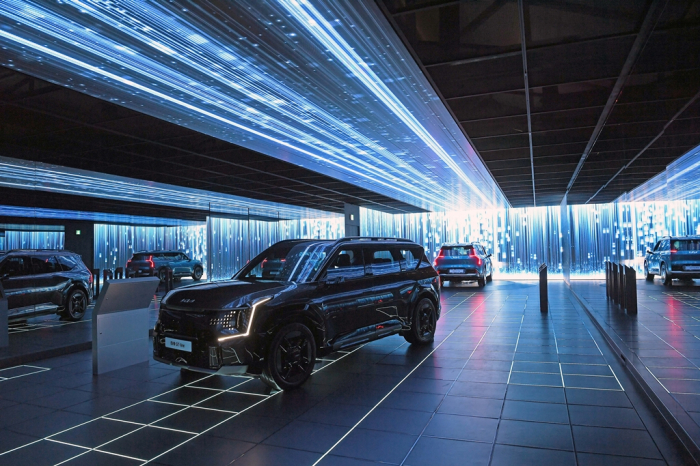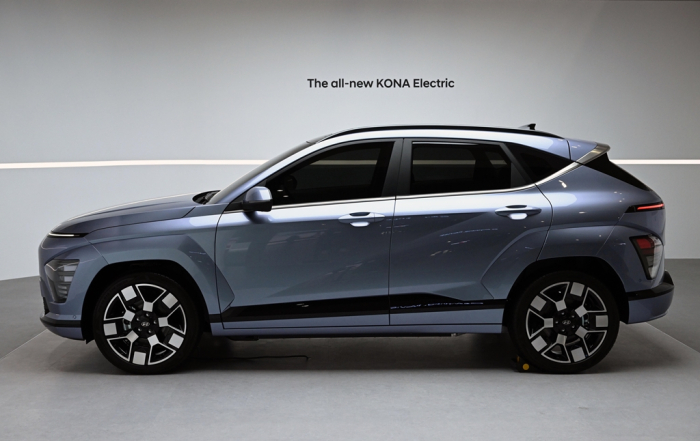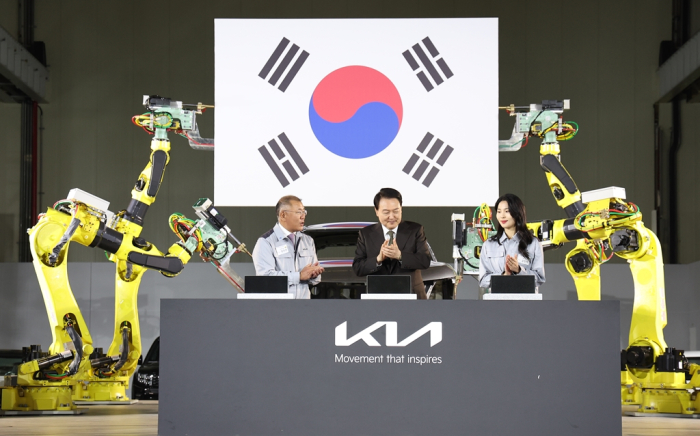Electric vehicles
Korea tops US eco-friendly car import rankings despite IRA disadvantage
Policy support in future car technology is required for Korean carmakers to stay ahead of rivals, the KIET says
By Jul 10, 2023 (Gmt+09:00)
2
Min read
Most Read
Hankook Tire buys $1 bn Hanon Systems stake from Hahn & Co.


NPS to hike risky asset purchases under simplified allocation system


Osstem to buy BrazilŌĆÖs No. 3 dental implant maker Implacil


S.Korea's LS Materials set to boost earnings ahead of IPO process


UAE to invest up to $1 bn in S.Korean ventures



South Korea retained its top spot in exports of eco-friendly vehicles including electric cars to the US in the first quarter despite challenges posed by the US Inflation Reduction Act (IRA), which disfavors non-North American firms.
According to a Korea Institute for Industrial Economics & Trade (KIET) report on Monday, Korea ranked top in US eco-friendly car import rankings with $2.13 billion worth of such cars in the first three months of the year.
Japan came in second with $1.88 billion, followed by Germany ($1.55 billion), Canada ($1.2 billion) and the UK ($427 million).
In 2020, Korea ranked fourth and climbed two steps to second place the following year. It then rose to the top post in 2022 and maintained its position in the first quarter of this year, the KIET said, citing data from the Korea International Trade Association.
KoreaŌĆÖs two largest carmakers ŌĆō Hyundai Motor Co. and sister firm Kia Corp. ŌĆō have expressed concerns over strict US EV tax credit rules since the US government announced the IRA last year.

EXPAND CAR LEASING PROGRAM IN US MARKET
The IRA requires that 50% of the value of battery components be produced or assembled in North America to qualify for a $3,750 subsidy. It also requires that 40% of the value of critical minerals be sourced from the US or a free trade partner for another $3,750 credit.
The law, enacted last August, requires vehicles to be assembled in North America to qualify for any tax credits. Foreign brands, denied access to US tax benefits, can qualify if and when they meet the requirements.
Hyundai said in April it is seeking various ways to make its electric vehicles sold in the US qualify for tax credits after its┬ĀElectrified GV70┬Āwas denied access to US government subsidies.
Hyundai said it will move up the start of┬Āits $5.5 billion EV plant in Georgia┬Āto the second half of 2024 from an original plan for 2025.

Hyundai and Kia said they would also try to expand their commercial leasing vehicle lineup, which is eligible for a $7,500 tax credit regardless of the North American assembly requirements.
The two companies said last week they posted record US car sales in the first half, driven by EVs and sport utility vehicles.
POLICY SUPPORT REQUIRED
The KIET said in the report, titled Changes in Automotive Export Structure and Future Challenges, that Korean carmakers need to diversify EV exports away from the US, push for electrification in commercial vehicles and advance their vehicle software development technology to remain competitive.
A KIET researcher said the global carbon neutrality campaign, particularly in Asian countries such as India, provides Korean carmakers with an opportunity to expand their EV export channels.
ŌĆ£To secure a mid-to-long-term competitiveness, Korean carmakers must have government policy support in commercial vehicle electrification and future car software development,ŌĆØ he said.
Write to Sul-Gi Lee at surugi@hankyung.com
In-Soo Nam edited this article.
More to Read
-
 AutomobilesHyundai, Kia set fresh H1 sales record in US, beating H1 2021
AutomobilesHyundai, Kia set fresh H1 sales record in US, beating H1 2021Jul 03, 2023 (Gmt+09:00)
1 Min read -
 Electric vehiclesHyundai Motor seeks remedies after GV70 exclusion from US subsidies
Electric vehiclesHyundai Motor seeks remedies after GV70 exclusion from US subsidiesApr 18, 2023 (Gmt+09:00)
4 Min read -
 Electric vehiclesHyundai Motor to boost EV leasing in US for tax credits from 2023
Electric vehiclesHyundai Motor to boost EV leasing in US for tax credits from 2023Dec 30, 2022 (Gmt+09:00)
2 Min read -
 Electric vehiclesHyundai Motor to boost US presence with $5.5 bn new Georgia EV plant
Electric vehiclesHyundai Motor to boost US presence with $5.5 bn new Georgia EV plantOct 26, 2022 (Gmt+09:00)
3 Min read -
 Electric vehiclesHyundai to build EVs at US plant; Electrified GV70 to roll out in Dec.
Electric vehiclesHyundai to build EVs at US plant; Electrified GV70 to roll out in Dec.Apr 13, 2022 (Gmt+09:00)
3 Min read
Comment 0
LOG IN


